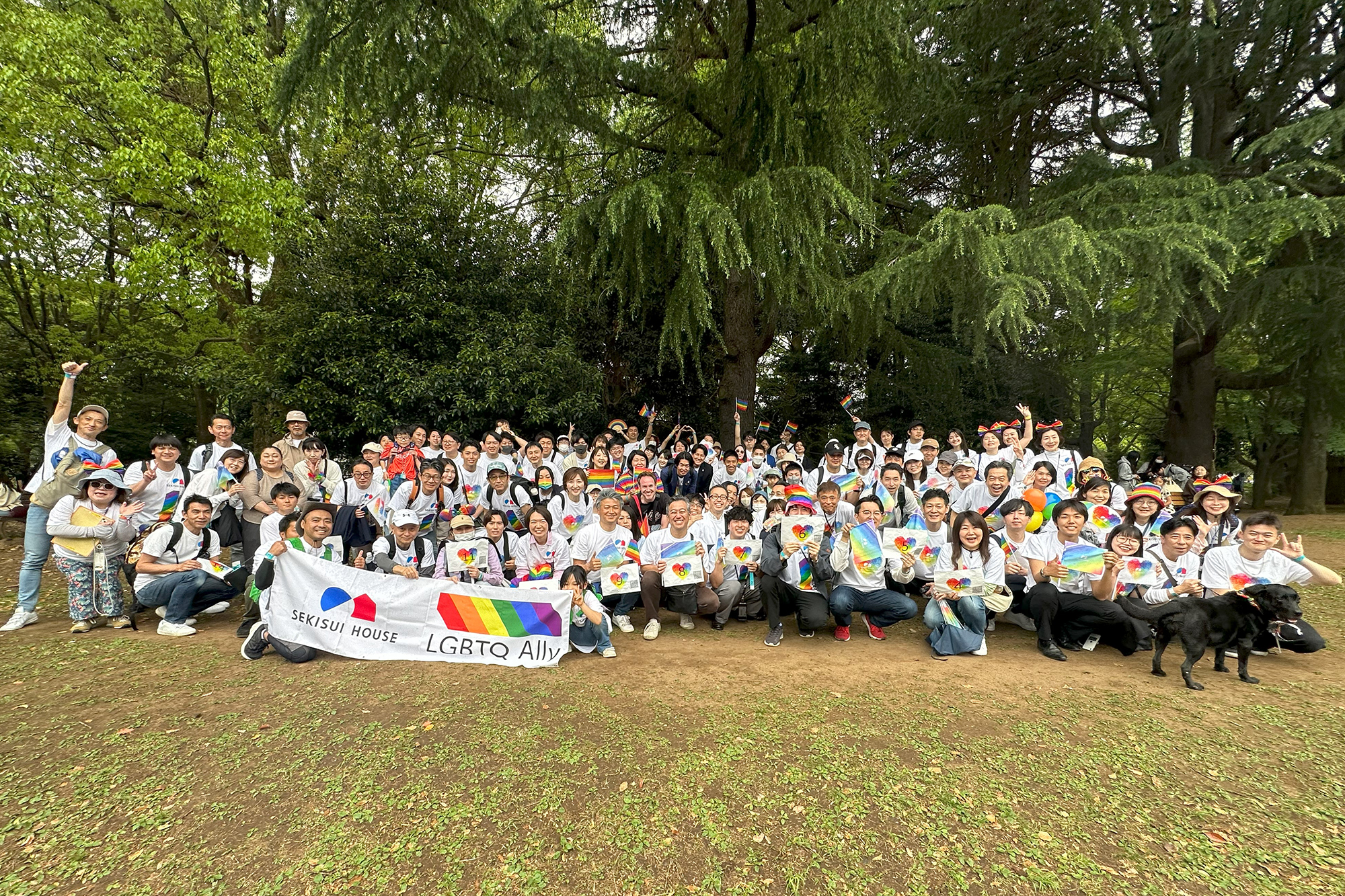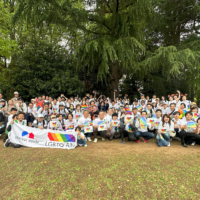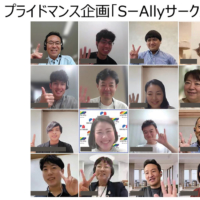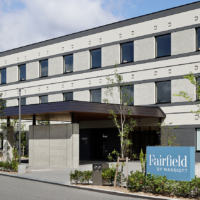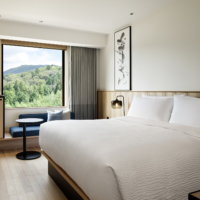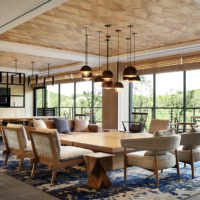Major builder Sekisui House Ltd. has been addressing LGBTQ+ issues since 2014 and is making efforts to strengthen such initiatives hand in hand with the Fairfield by Marriott Michi-no-Eki project.
Sekisui House, which owns 29 Fairfield by Marriott hotels in Japan, teamed up with the hotel to launch the Michi-no-Eki (roadside station) project with the aim of revitalizing small communities. Under the concept of “Quest for Unknown Japan,” they aim to help such communities boost their economies together with governments and partner companies, using tourism as a starting point.
As one of the project’s initiatives, they invited an LGBTQ lecturer to conduct a hybrid online and offline training session on related issues in April. A total of 106 participants, including staffers from all 29 hotels and members of regional tourism federations, participated.
In addition, the two companies also participated in the Tokyo Rainbow Pride 2024 event in Tokyo’s Yoyogi Park from April 19 to 21. This year, about 150 employees from the Sekisui House Group — about three times more than last year — participated in the parade with their families and friends. They also plan to participate in the IGLTA 2024 Global Convention to be held in Osaka from Oct. 23 to 26, as part of their sponsorship.
LGBTQ+ initiatives
Sekisui House originally started paying attention to LGBTQ+ issues to ensure a safe and comfortable working environment. “We will realize a corporate group where each and every employee can make the most of their diversity,” President Yoshihiro Nakai states in his corporate message.
To that end, LGBTQ+ training programs were introduced as part of comprehensive human rights training for all employees in 2014. After that, a system was launched in 2019 that allows employees with same-sex partners to have those partners registered as family members so they can receive the same benefits as other employees, including insurance and child care leave.
Also, a two-person division was set up in the Human Resources and General Affairs Department to address issues that employees, including LGBTQ+ staffers, might encounter at the office.
“It might be rare for companies to have in-house personnel provide consultations like we do. Some companies might instead connect such employees with NPOs (nonprofit organizations) outside of the company that provide support,” said Yu Matsuoka, who was in charge of diversity and inclusion promotion at the time of the interview.
These initiatives were followed in 2022 by two types of “reforms” dealing with forms and “consciousness.”
The first reform refers to questionnaires that Sekisui House asked customers to fill out at exhibition halls. These typically inquired about their sex and family structure. Under the reform, the sex question was removed. However, in cases where it is necessary for marketing, it was expanded from just male and female to include “prefer not to specify,” while the family relationship question was changed to spouse and “partner.”
“In order to unify the awareness, we decided that we should also talk to the real estate group Sha Maison brand’s rental housing that is directly involved with people looking for a room. We called on all the companies and we started providing training to about 3,000 people, which consisted of Sekisui House Real Estate’s leasing staff as well as staff from affiliated companies, via video streaming,” Matsuoka said.
In March last year, the company launched the S-Ally Circle, a network of LGBTQ+ supporters, so members could exchange information and socialize. The network has over 200 members and can use an internal social networking service to exchange information on related content, news and events, as well as ask questions directly to LGBTQ+ staffers.
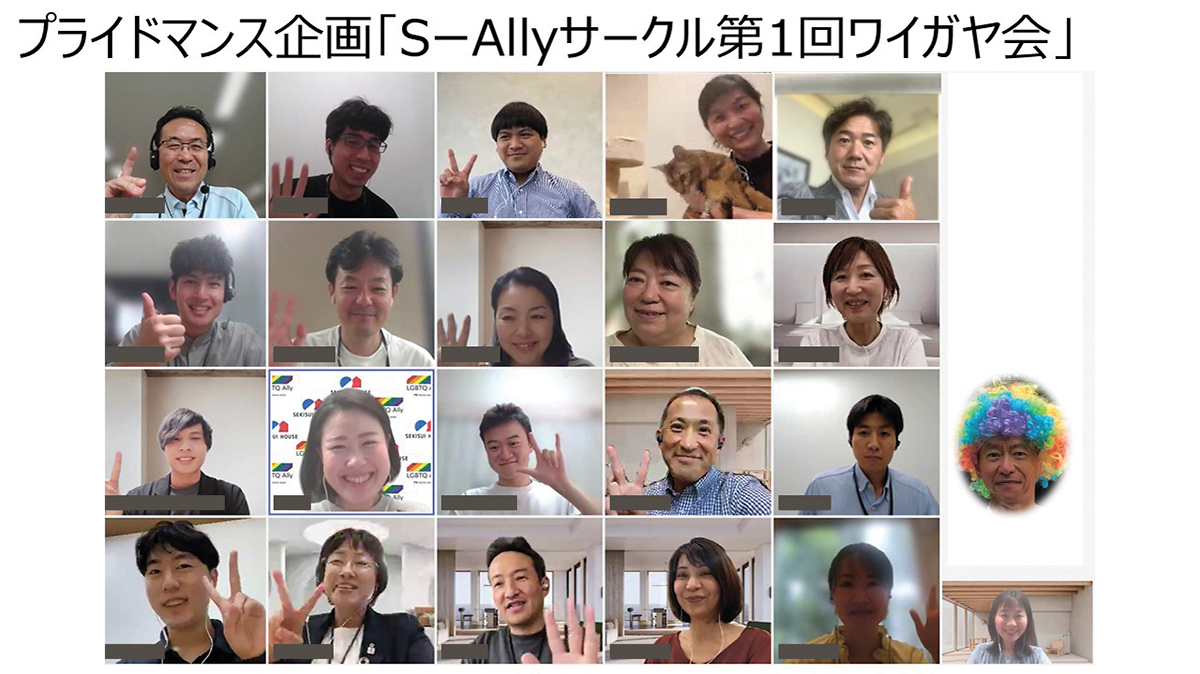
The company periodically holds online lunches where employees who have come out are the speakers, discussing their experiences and increasing their visibility to other employees. “We try to create opportunities for them to talk about their problems” and how they’d like to see them resolved, Matsuoka said.
These initiatives have borne fruit, and Sekisui House, as the first house maker in Japan to do so, has received several accolades from the work with Pride association.
“We will continue to create a workplace where people can work with peace of mind … Japan is falling behind with laws … I believe that society will change if various industries, not just the housing industry, cooperate with each other. I would like to give shape to that kind of corporate responsibility toward society,” Matsuoka said.
Michi-no-Eki
As part of the Michi-no-Eki project, most of the Fairfield by Marriott hotels are situated by roadside stations nationwide to serve as a destination to explore nearby attractions, culinary experiences and unspoiled nature so visitors can connect with local residents.
The Fairfield by Marriott Kyoto Kyotamba is no exception, ensuring that any guest regardless of nationality, background or sex, can stay with peace of mind. Away from the hustle and bustle of city life, guests can enjoy privacy at the hotel while being surrounded by serene nature, making their stay all the more relaxing.
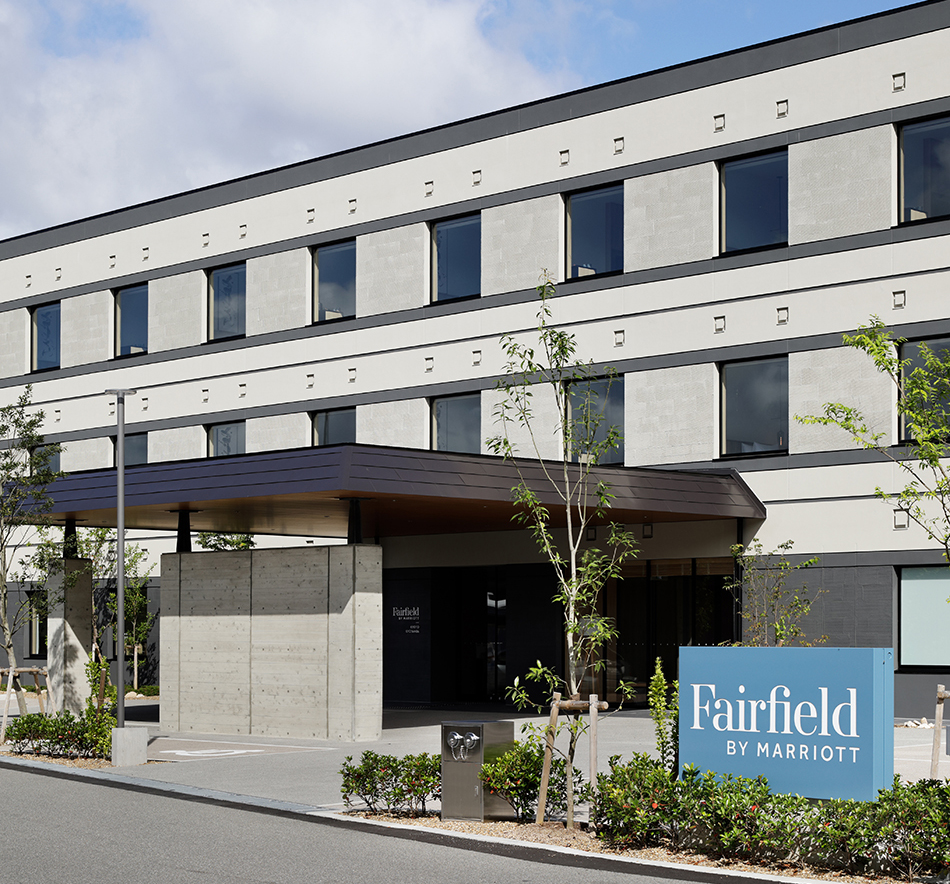
“Everyone should be able to travel with peace of mind. I really want people to come to Japan, spend a fulfilling time and discover the country’s many attractions,” said Yoko Nakamoto, marketing director of the Michi-no-Eki project.
The hotel is about an hour from Kyoto Station, right in the middle of the prefecture, by car. If not by car, one can take the JR Sagano Line to Sonobe Station, where the hotel is about 20 minutes away by taxi or bus.
The hotel sits in an area that is rich in nature, beside the roadside station Kyoto Kyotamba Ajimunosato. The opening of the roadside station in 2015 was accompanied by the opening of the 93-kilometer-long Kyoto Jukan Expressway connecting the northern and southern sides of Kyoto.
“You can feel a sense of Japan just by looking at nature, and the several temples nearby … and rent a bicycle at the roadside station and enjoy the well-maintained bicycle paths, while enjoying Japanese scenery,” Nakamoto said.
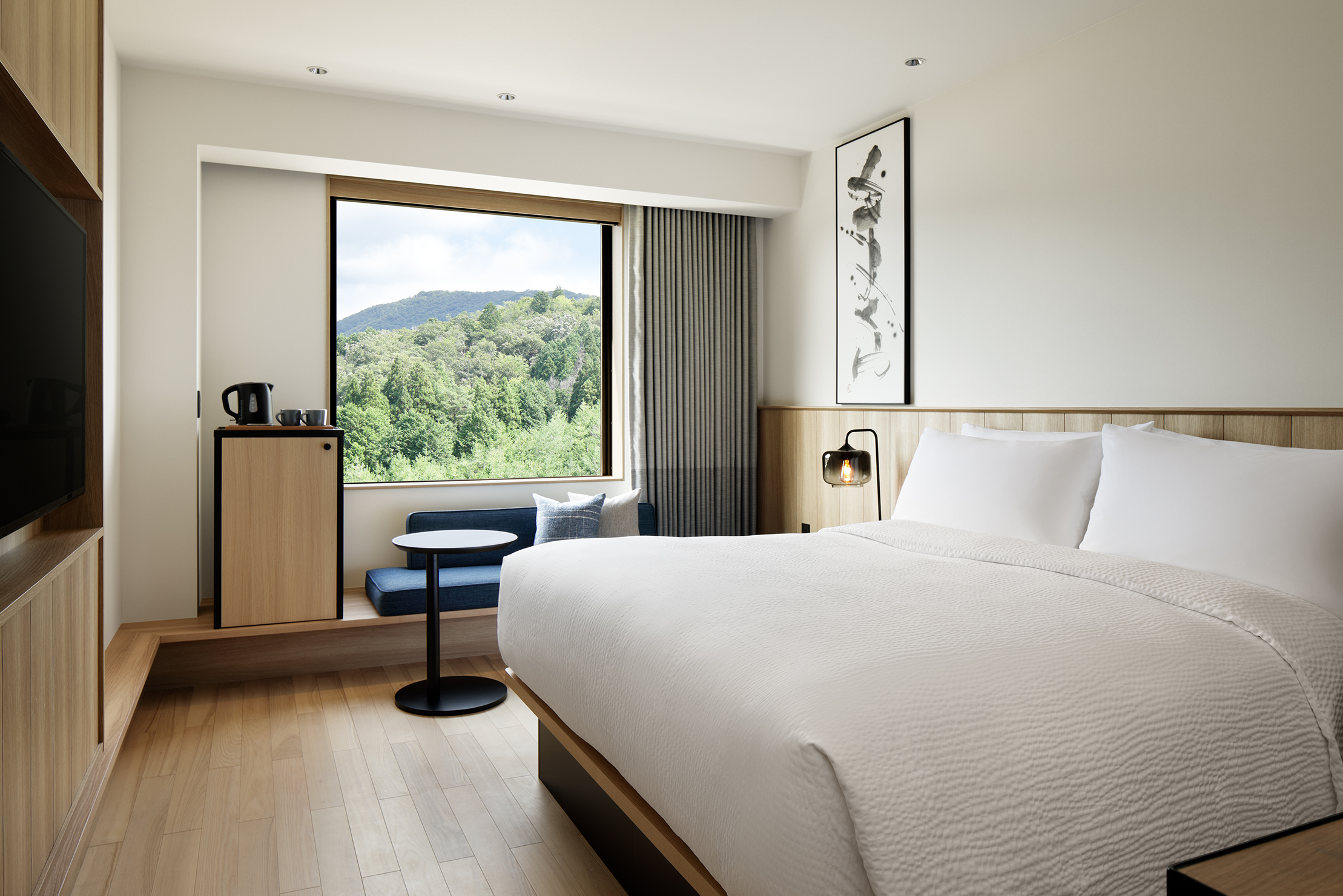
The roadside station also offers a wide variety of local products for sale, including Tamba chestnuts and kuromame (sweet black soybeans) that are representative of Kyotamba, as well as rice, freshly picked kyoyasai (Kyoto vegetables), sweets and other specialties.
The hotel’s operations manager said many visitors come here every year to enjoy the kuromame.
Since the hotel doesn’t have a restaurant, visitors can savor good food at the roadside station, where the restaurant offers a kuromame set featuring all kinds of bean dishes from starters to desserts. Visitors who come by car can also enjoy a variety of restaurants in the neighborhood, as well as the nearby winery, known for its delicious Tamba wine.
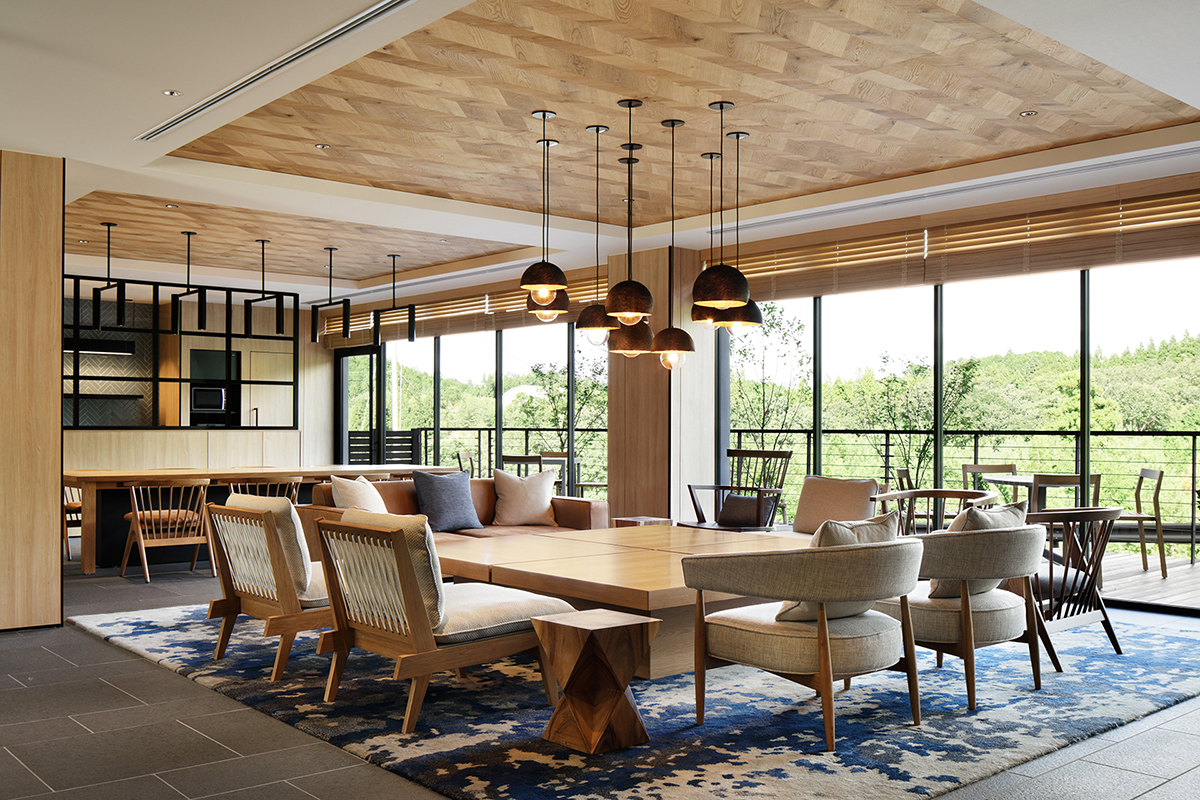
This page is sponsored by Sekisui House Ltd. and the Fairfield by Marriott Michi-no-Eki project.



